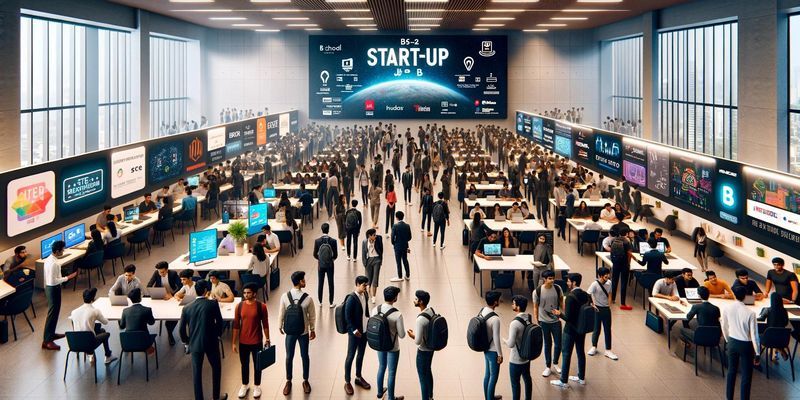AI-powered food revolution: Farm to fork in the digital age
As we explore the intersection of technology and gastronomy, you'll gain insights into the dynamic and promising future of the food industry.
In the ever-evolving world of food technology, there's a growing synergy between the farm and the fork, and it's being driven by the incredible potential of Artificial Intelligence (AI). Today, we're embarking on a journey to explore the fascinating future of food tech, where AI is not just a buzzword but a transformative force that's revolutionising how we grow, process, distribute, and consume food.
With AI, we're witnessing a seismic shift in the entire food industry, from precision agriculture to personalised nutrition. Let's delve deeper into this exciting revolution!
AI-powered agriculture: Growing smarter, not harder
Smart farming with AI
Traditional farming methods are meeting their match in AI-driven agriculture. Imagine smart sensors in fields and drones equipped with AI algorithms, monitoring crop health, soil conditions, and weather forecasts in real time. This data is then used to optimise irrigation, reduce the need for chemical inputs, and improve crop yields. AI is making farming more sustainable, cost-effective, and environmentally friendly.
Crop disease detection
One of the critical challenges in agriculture is identifying and mitigating crop diseases. AI-powered computer vision systems can now accurately detect diseases in plants by analysing images of leaves. Early detection allows farmers to take action promptly, saving crops and minimising losses.
Food processing: Efficiency and quality enhancement
Automated quality control
Food processing plants have often struggled with quality control. AI-driven automation and robotics are changing that. Machines equipped with computer vision and machine learning can spot defects, ensure uniform product quality, and even improve the packaging process. This results in safer, higher-quality food products reaching consumers.
Predictive maintenance
Food processing equipment requires regular maintenance to avoid costly breakdowns. AI systems can predict when equipment might fail based on real-time data, allowing maintenance crews to address issues before they disrupt production, ensuring a smoother operation and better food safety.
Supply chain optimisation
Intelligent inventory management
Managing the food supply chain efficiently is no small feat. AI can predict demand patterns, optimise inventory levels, and minimise food waste by ensuring products are delivered just in time, reducing spoilage and unnecessary storage costs.
Traceability and transparency
Consumers are increasingly demanding information about the source and journey of their food. AI, combined with blockchain technology, can provide an unbroken chain of custody from farm to fork. This enhances transparency, improves food safety, and helps build trust between producers and consumers.
Personalised Nutrition
AI nutrition apps
Gone are the days of one-size-fits-all dietary advice. AI-powered nutrition apps can analyse a person's health data, preferences, and dietary restrictions to create personalised meal plans. This not only promotes better health but also reduces food waste by aligning dietary recommendations with individual needs.
Precision medicine
Nutrigenomics, a field that explores how our genes interact with our diet, is getting a boost from AI. By analysing genetic information and health records, AI can help tailor nutritional recommendations to an individual's unique genetic makeup, potentially preventing diet-related diseases.
Consumer experience: AI in restaurants and food delivery
AI-enhanced menus
In the restaurant industry, AI is making menus smarter. AI-driven systems can analyse customer data, preferences, and dietary restrictions to recommend personalised menu items, improving the dining experience and customer satisfaction.
Efficient food delivery
Food delivery services are using AI to optimise routes and delivery times, ensuring that hot and fresh food reaches the customer's doorstep. This efficiency enhances the overall experience for consumers, boosting the food delivery business.
The future is here
The convergence of AI and food technology is nothing short of extraordinary. It's not just a matter of increasing efficiency or reducing costs; it's about transforming the way we grow, process, and consume food. From AI-powered agriculture to personalised nutrition and improved supply chain management, the future of food tech is brighter and more promising than ever before.
As we embrace AI's potential, we can look forward to a food system that's not only more sustainable and efficient but also more transparent and consumer-centric. So, whether you're a farmer, a food processor, a chef, or just someone who loves a good meal, get ready for a tastier, healthier, and more sustainable future, courtesy of AI.











